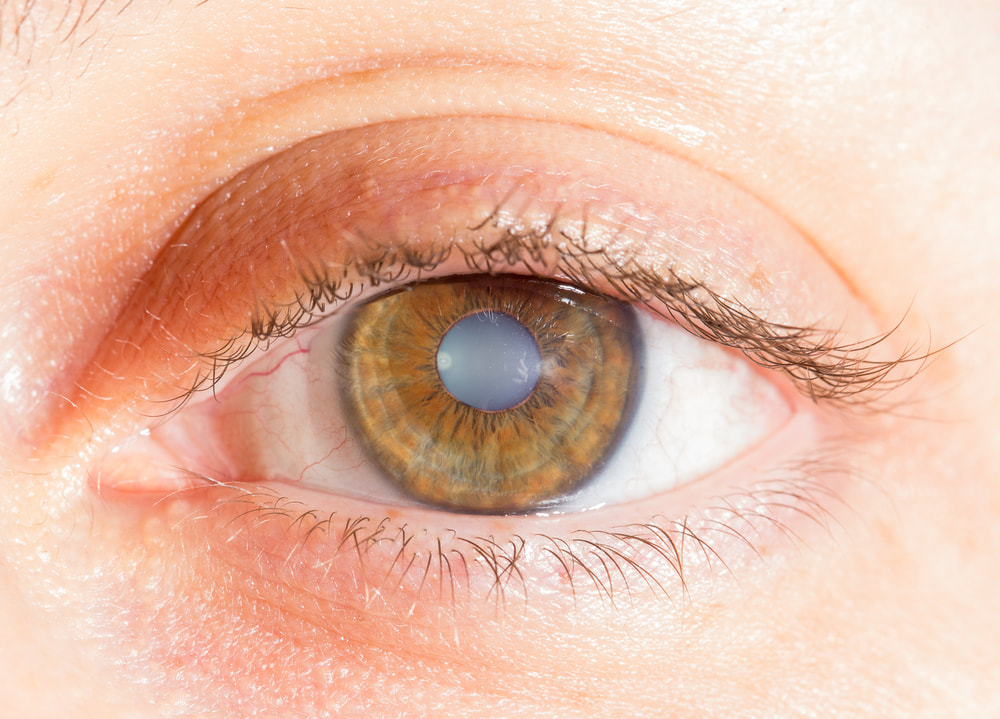What are early-onset cataracts?Cataracts involve a clouding of the lens in the eye. When the lens becomes cloudy, it interferes with proper vision. The biggest risk factor for developing cataracts is advanced age, but in some people, cataracts develop earlier. Early-onset cataracts develop before the age of 45. The symptoms of cataracts are the same whether they develop in younger adults or people in their 60s, 70s, and beyond. In many cases, a person may not know they have a cataract until the condition becomes more advanced. Symptoms of cataracts include the following:
Causes of early-onset cataractsInstead of changes to the lens due to aging, early-onset cataracts can occur due to a variety of reason, including: Trauma to the eye: An injury to the eye may damage the lens and lead to cloudiness. Cataracts may not develop immediately after an injury, but sustaining certain types of eye injuries may lead to cataracts several years after the injury, yet still earlier than age-related cataracts. Side effects from medication: Some types of medications, such as certain cholesterol drugs and steroids, may increase a person’s risk of developing cataracts. Usually, the longer a person uses this type of medication, the higher their risk. Certain lifestyle factors: Excess exposure to UV rays from the sun, smoking, and obesity are considered possible risk factors for early-onset cataracts. Radiation exposure: Having excessive exposure to radiation, such as having radiation therapy as part of cancer treatment, may increase the risk of cataracts at an early age. Certain medical conditions: People that have certain medical conditions, such as diabetes, may develop cataracts at an early age due to elevated blood sugars. Having glaucoma also increases a person’s chances of developing cataracts early. TreatmentFortunately, cataracts are treatable with surgery. During surgery, the lens is removed and replaced. There are a few options to replace the lens. For example, the lens may be replaced with an intraocular lens or a contact lens. Different surgical approaches are also available, including laser-assisted and traditional cataract surgery. After an incision is made, sound waves are used to soften or break up the lens. A suction device is used to remove the lens, and it is replaced with an artificial lens. Both traditional and laser associated cataract surgery is effective at removing cataracts. According to the American Academy of Ophthalmology, it takes about three months to fully recover after cataract surgery. But most people have improved vision in about a week or two. PreventionCurrently, there is no proven way to prevent cataracts, and it may not be possible to prevent early-onset cataracts in all cases. But there are certain steps someone can take to reduce their risk. Consider the following prevention tips:
Have regular eye exams: Have regular eye exams as recommended by your eye doctor. Routine eye exams can help identify eye problems as soon as possible. Wear sunglasses that provide protection to UV rays: Since UV exposure is a risk factor for developing cataracts, wearing sunglasses is helpful. Maintain a healthy weight: Obesity and diseases associated with obesity, such as diabetes, are linked to early-onset cataracts. Maintaining a healthy weight can reduce your risk of certain medical conditions and, subsequently, cataracts at a young age. We are happy to answer any questions on cataracts or any other eye concern or to discuss whether an appointment with one of our eye doctors is appropriate at this time. Please call our office at 508-746-8600. Comments are closed.
|
EYE HEALTH BLOGCategories
All
Archives
July 2024
|
|
Kadrmas Eye Care New England
55 Commerce Way, Plymouth, MA 02360
14 Tobey Road, Wareham, MA 02571 133 Falmouth Road (Rt 28), Mashpee, MA 02649 |
Phone Number:
1-508-746-8600 Hours: Monday through Friday — 8 AM – 4:30 PM |


 RSS Feed
RSS Feed
